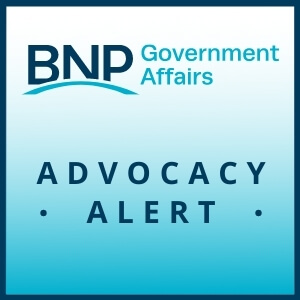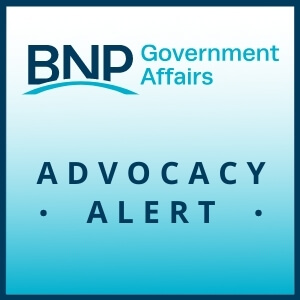3.31.22 Advocacy Alert: State Budget to be Late
Blog Categories
March 31, 2022
New York State is poised to miss its budget deadline. The budget is due when the state’s fiscal year begins at midnight tonight. However, lawmakers are returning home tonight without a deal, and they plan to reconvene in Albany on Monday.
Over the weekend, Gov. Hochul and legislative leaders will continue negotiating the most contentious issues. Sticking points include:
- Bail and discovery reforms. Bail reform is the #1 issue, and it has dominated negotiations this week. Governor Hochul has proposed tweaks to the 2019 criminal justice reforms after the state has seen an increase in crime, but many Democratic legislators have sharply opposed amendments. One Assemblymember is on her 10th day of a hunger strike to protest making changes to the bail law.
- Bills Stadium. Gov. Hochul’s announcement of a historic deal to keep the Bills in Buffalo complicated negotiations because it came just four days before the budget is due. Hochul also announced that about 70% of the state’s contribution would come from the Seneca Nation casino’s payments to the state – revenue generated in the Buffalo Niagara region. A handful of NYC-area legislators have decried the deal, but debate continues on how exactly to finance the state’s contribution.
- Gas tax. With soaring inflation and steep gas prices, there has been momentum behind a proposal to suspend the state’s 48-cent/gallon tax on gasoline. Hochul has been hesitant to embrace the concept, but there may be enough bipartisan support to make it happen.
- Downstate casinos. State leaders are poised to approve licenses for three casinos in the New York City area, but the complicated details are still being ironed out in negotiations. This issue will not affect Buffalo Niagara, since the state’s compact with the Seneca Nation prohibits state-authorized casinos west of Geneva.
- All-electric buildings. Some legislators are pushing a proposal to mandate that most new buildings be 100% electric powered by 2024, effectively banning new natural gas hookups. Many groups, including the BNP, have raised concerns about the practicality of such an aggressive move and timeline, and the Legislature appears divided on this issue.
- Kendra’s Law. A 1999 law allowing for involuntary psychiatric treatment for mentally ill individuals is set to expire this year. Debates over program reforms have complicated the renewal effort.
Although they may not be causing the logjam, the Legislature continues to negotiate many other key issues, such as renewing the Brownfield Cleanup Program and stabilizing the Unemployment Insurance system. To contact legislators about these important issues, visit our Take Action page.
The state is expected to finalize a budget by Monday. The BNP will keep you informed on what the budget includes once enacted.
Related Posts
9.6.23 Advocacy Alert: Preparing for Pay Transparency
Blog Back to Our Blog Blog Categories This month, a new law regarding pay transparency will take effect in New York. All employers should prepare to comply with this law. Get answers to frequently asked questions below. What does the law require? The law requires employers to disclose the compensation (salary or wage) or range of compensation…
Advocacy Alert: State Legislature Ends Session
The New York State Legislature gaveled out for the final time of the 2023 legislative session. Although a special session is possible before the end of the year, no major legislative push is expected.
Although much of the most impactful legislation being debated was tabled until next year, many important bills were passed in the waning days of session.
Advocacy Alert: End of Session: What We’re Watching
All eyes are on Albany as the Legislature enters the final two weeks of the 2023 legislative session. Amid the hundreds of bills that will pass in the coming days, the BNP is keeping an eye on the following issues:
Advocacy Alert: NYS Budget
State lawmakers recently approved the 2023 state budget. In total, the budget will spend $229 billion – a record amount and a 33% increase in spending since 2019.


